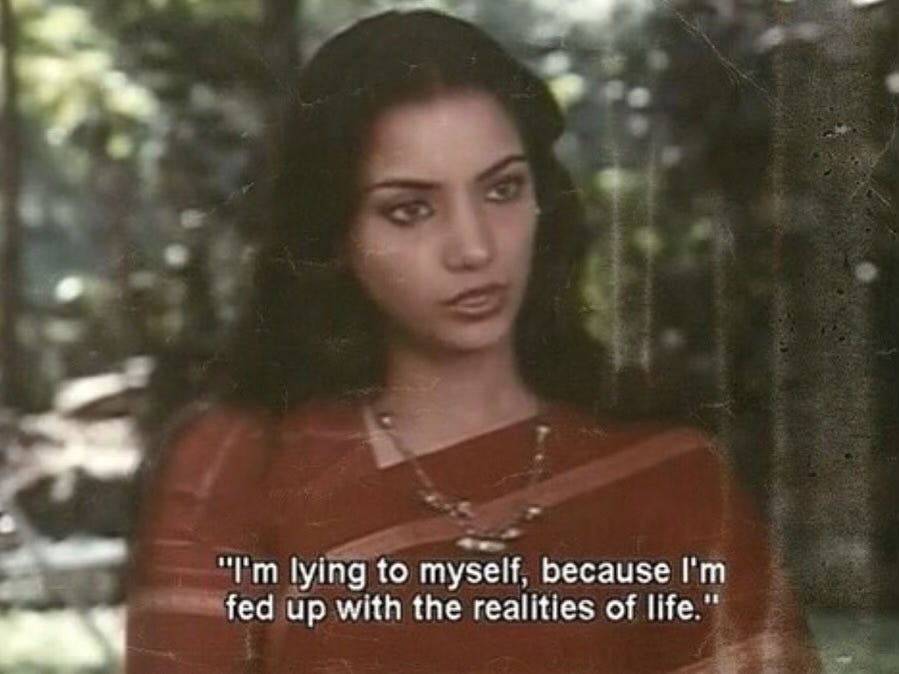The Part We Don't Talk About
Notes on spiritual bypass, mindfulness culture and living in impossible systems
Last week, Ezra Klein (New York Times journalist and podcaster) quoted a Buddhist parable on his podcast with Ta-Nehisi Coates.
The internet erupted.
People went in on Klein for a number of things, his responses, his stance on bridging the divide within the country and for dismissing Coates’ reflections on the unending reality of the Black American experience.
Others called this snippet about the Buddhist parable he uses mid-conversation a blatant example of spiritual bypass, a term for when we use spiritual ideas to sidestep psychological wounds or uncomfortable truths. In this case, hiding behind ancient wisdom instead of facing the present moment’s demand for clarity, for action, for rage when rage is called for.
I’ve been thinking about this a lot. As it pertains to the world of wellness.
Because they’re not entirely wrong.
I’ve spent many years in this space. Teaching meditation, building brands, sitting with thousands of people as they try to make sense of their suffering. And somewhere along the way, I’ve watched modern spirituality become something it was never meant to be: a hiding place.
Spiritual bypass is what happens when we use meditation, mindfulness, or Buddhist philosophy to avoid the messy reality of being alive. It’s when “everything happens for a reason” becomes a way to stop asking why. When “let it go” means don’t feel it at all. When “be present” becomes code for don’t look too closely at the systems that are breaking us.
Klein’s critics sensed this. They felt the way spirituality can be wielded as a shield. A way to stay comfortable, perhaps neutral, when comfort isn’t what the moment needs.
But here’s what I want to say: the problem isn’t Buddhism. It’s not meditation. It’s not even the parable itself.
The problem is what this conversation has unearthed. Modern mindfulness soothes us. But it doesn’t free us.
Modern wellness has become obsessed with refining the mind and regulating the nervous system. We track our HRV. We optimize our sleep. We chase flow states and peak performance. We learn to observe our thoughts, to breathe through discomfort, to find the gap between stimulus and response.
All of this is useful. In times like these, it’s needed. I believe in it.
For many people, the soothing is the first step toward freedom. Someone in an abusive relationship who learns to observe their thoughts might finally gain the clarity to leave. A person drowning in anxiety might find enough space to function again.
The problem isn’t that mindfulness calms us.
It’s that we treat calmness as the destination rather than the beginning.
Keep reading with a 7-day free trial
Subscribe to Field Notes From Samsara to keep reading this post and get 7 days of free access to the full post archives.



